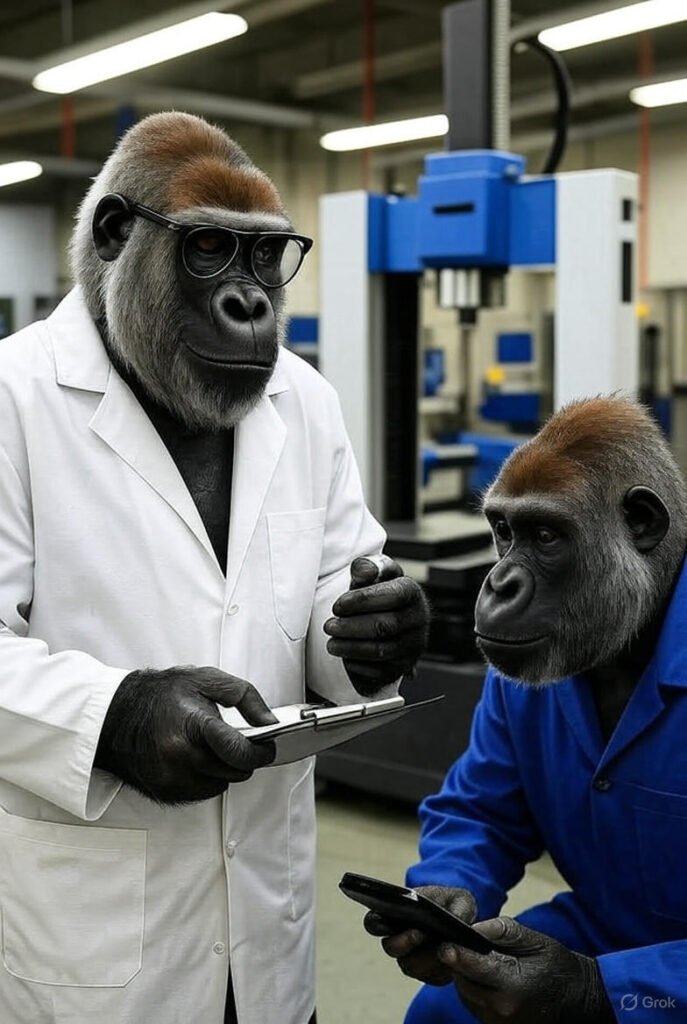
Introduction
In the world of precision measurement, the roles of Metrology Engineer and Metrology Technician are often confused — yet they are distinct and complementary.
Both professionals ensure that measurements are reliable, traceable, and compliant, but they operate at different levels of responsibility and expertise. Understanding this difference is essential for companies investing in shopfloor metrology, used CMMs, or other measurement instruments, and for those looking to build strong metrology teams.
The Role of a Metrology Engineer
A Metrology Engineer focuses on developing and optimizing measurement processes. They analyze specifications, design measurement methods, and ensure traceability to international standards.
Typical responsibilities include:
- Selecting and validating metrology equipment (CMMs, scanners, form testers, gauges).
- Designing measurement strategies based on tolerances and GD&T requirements.
- Establishing calibration plans and uncertainty budgets.
- Supporting digital integration — linking measurement data to ERP or MES systems.
Metrology Engineers are often involved early in product development, defining what needs to be measured, how, and with what accuracy. Their work directly influences product quality and process capability.
The Role of a Metrology Technician
A Metrology Technician operates and maintains the measurement systems designed by engineers. They are the hands-on experts who run inspections, perform calibrations, and verify results on the shop floor.
Their daily activities may include:
- Measuring parts using CMMs, surface testers, or optical systems.
- Maintaining calibration records and ensuring traceability.
- Diagnosing measurement deviations and reporting anomalies.
- Supporting the transition between new and used metrology equipment in production.
Technicians transform theory into practice. Their expertise ensures that measurement plans are executed accurately and consistently, directly impacting the company’s ability to meet specifications.
Collaboration on the Shop Floor
In a successful manufacturing environment, engineers and technicians work closely together. Engineers define the measurement strategy; technicians ensure it runs smoothly in real-world conditions.
This collaboration becomes even more critical in shopfloor metrology, where environmental factors such as vibration and temperature can influence results.
Used or reconditioned equipment often requires close coordination: engineers assess performance and integration, while technicians handle setup, verification, and calibration.
Career Paths and Skills
- Metrology Engineers usually hold a degree in mechanical, industrial, or precision engineering and have training in statistics, GD&T, and uncertainty analysis.
- Metrology Technicians typically gain experience through vocational training or apprenticeships, building strong skills in equipment operation and inspection techniques.
Both roles are in high demand as manufacturing shifts toward data-driven quality control and digital metrology.
Conclusion
The distinction between Metrology Engineers and Metrology Technicians lies in scope and responsibility, not in importance. Both are essential to maintaining measurement reliability, especially in advanced manufacturing environments that rely on CMMs, shopfloor metrology, and used measurement instruments.
Together, they form the backbone of precision — ensuring that every measurement counts.

Comments